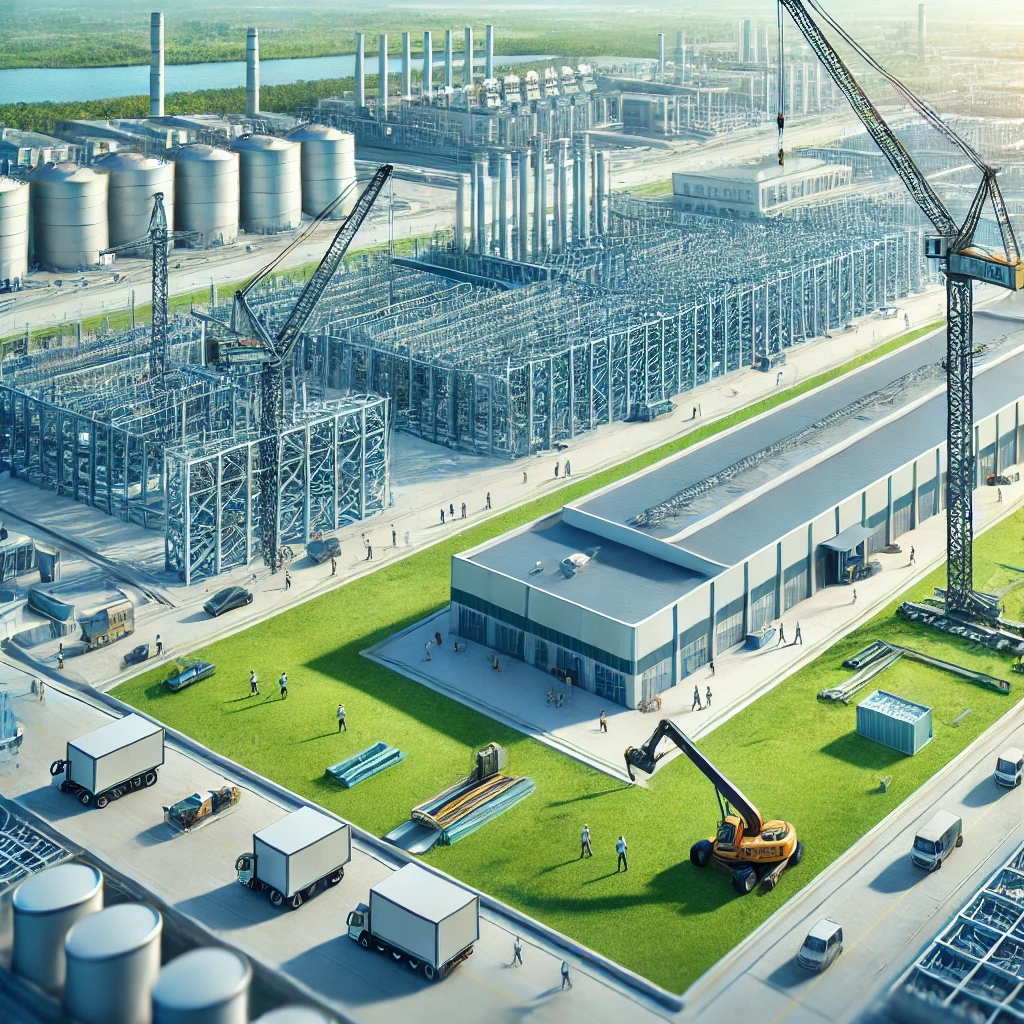How to Choose a Location for a Battery Cell Factory in Guangdong
来源:
|
作者:Valarie
|
发布时间 :2024-12-18
|
125 次浏览:
|
Share:
As the global demand for electric vehicles (EVs) and renewable energy storage continues to soar, Guangdong Province, one of China’s most economically vibrant regions, is becoming an increasingly attractive destination for the construction of battery cell factories. A strategic location for such a facility can offer companies a competitive advantage in the rapidly growing battery manufacturing industry. Here are the key factors that need to be considered when selecting a location for a battery cell factory in Guangdong.
As the global demand for electric vehicles (EVs) and renewable energy storage continues to soar, Guangdong Province, one of China’s most economically vibrant regions, is becoming an increasingly attractive destination for the construction of battery cell factories. A strategic location for such a facility can offer companies a competitive advantage in the rapidly growing battery manufacturing industry. Here are the key factors that need to be considered when selecting a location for a battery cell factory in Guangdong.
1. Proximity to Key Supply Chains
One of the most critical factors when selecting a location for a battery cell factory is its proximity to key raw material suppliers. Guangdong is well-positioned due to its strong industrial infrastructure and close proximity to ports such as the Port of Guangzhou and Port of Shenzhen, which handle a significant portion of China’s imports and exports. This access to global markets makes it easier to source materials like lithium, cobalt, and nickel—essential components for battery manufacturing.

Additionally, Guangdong is home to several high-tech companies and industries, including electronics and automotive manufacturing, which can create synergy and reduce logistics costs. Battery manufacturers can also benefit from the region’s well-established supply chain networks for parts and equipment, further enhancing operational efficiency.
2. Access to Skilled Labor
Battery cell manufacturing requires a skilled workforce with expertise in advanced technologies, engineering, and manufacturing processes. Guangdong’s well-developed educational system and training programs in fields like electrical engineering and materials science provide a strong talent pool for the industry.
The region also has several universities and research institutions focused on advanced manufacturing, making it easier to recruit qualified employees. Companies setting up battery cell factories in Guangdong can tap into this talent pool to drive innovation and maintain high production standards.
3. Energy Infrastructure and Sustainability
As the world transitions to cleaner energy, battery manufacturing facilities must ensure that their operations are sustainable and energy-efficient. Guangdong’s electricity grid is one of the most reliable in China, with substantial investment in renewable energy sources, such as solar and wind power.
For battery cell manufacturers, having access to sustainable energy sources is critical to reduce carbon footprints and align with global sustainability goals. Choosing a location with easy access to renewable energy options will not only help the environment but also provide long-term cost savings for the factory.
4. Government Incentives and Policies
The Chinese government has been highly supportive of the electric vehicle and renewable energy industries through subsidies, tax breaks, and incentives. Guangdong, in particular, offers a range of financial incentives to encourage investment in high-tech manufacturing, including battery production.
Local governments in Guangdong are committed to fostering innovation and creating a business-friendly environment. These incentives can significantly lower operational costs for battery cell manufacturers and attract investment from both domestic and foreign companies. It is essential to consider the local government’s policies and incentives when deciding on a factory location.
5. Logistics and Transportation
Efficient logistics and transportation networks are essential to ensure that raw materials, components, and finished products are delivered on time. Guangdong’s well-developed transportation infrastructure, including highways, railways, and airports, ensures smooth connectivity both domestically and internationally.
The proximity to major cities like Guangzhou and Shenzhen allows for easier access to major consumer markets, including the growing electric vehicle market in China. Additionally, the region’s robust shipping and transportation network can help manufacturers reach global markets quickly, improving their competitive edge.
6. Environmental Considerations
Battery manufacturing involves the use of chemicals and materials that require careful handling. Therefore, it is important to consider environmental regulations when selecting a site. Guangdong has increasingly stringent environmental policies to ensure that industrial activities do not harm the local ecosystem.
Choosing a location that complies with these regulations and has proper waste disposal and recycling systems in place is critical for maintaining environmental responsibility. Battery manufacturers in Guangdong must invest in sustainable production practices to ensure long-term environmental and operational success.
Conclusion
Guangdong Province offers a wide range of advantages for companies looking to build battery cell factories. With its strategic location, skilled workforce, reliable energy infrastructure, government incentives, and strong logistics network, Guangdong stands out as a key destination for battery manufacturing in China. However, companies must carefully consider factors such as raw material supply chains, labor availability, sustainability, and environmental regulations to ensure the long-term success of their operations.
By choosing the right location, battery cell manufacturers can tap into the growing demand for clean energy solutions, contribute to the global transition towards renewable energy, and position themselves as leaders in the competitive battery manufacturing market.
---author: Valarie

Shenzhen Yabo Power Technology Co., Ltd.
Quick Links
Product Categories
Contact us
rome_jia@yabopower.com
+86-13828714933
No.252 Pinglong East Road, Fenghuang Community, Pinghu Street, Longgang District, Shenzhen
© 2024 Shenzhen Yabo Power Technology Co., Ltd. All Rights Reserved. Designed by Erge










